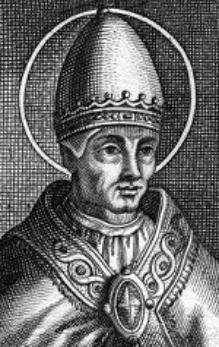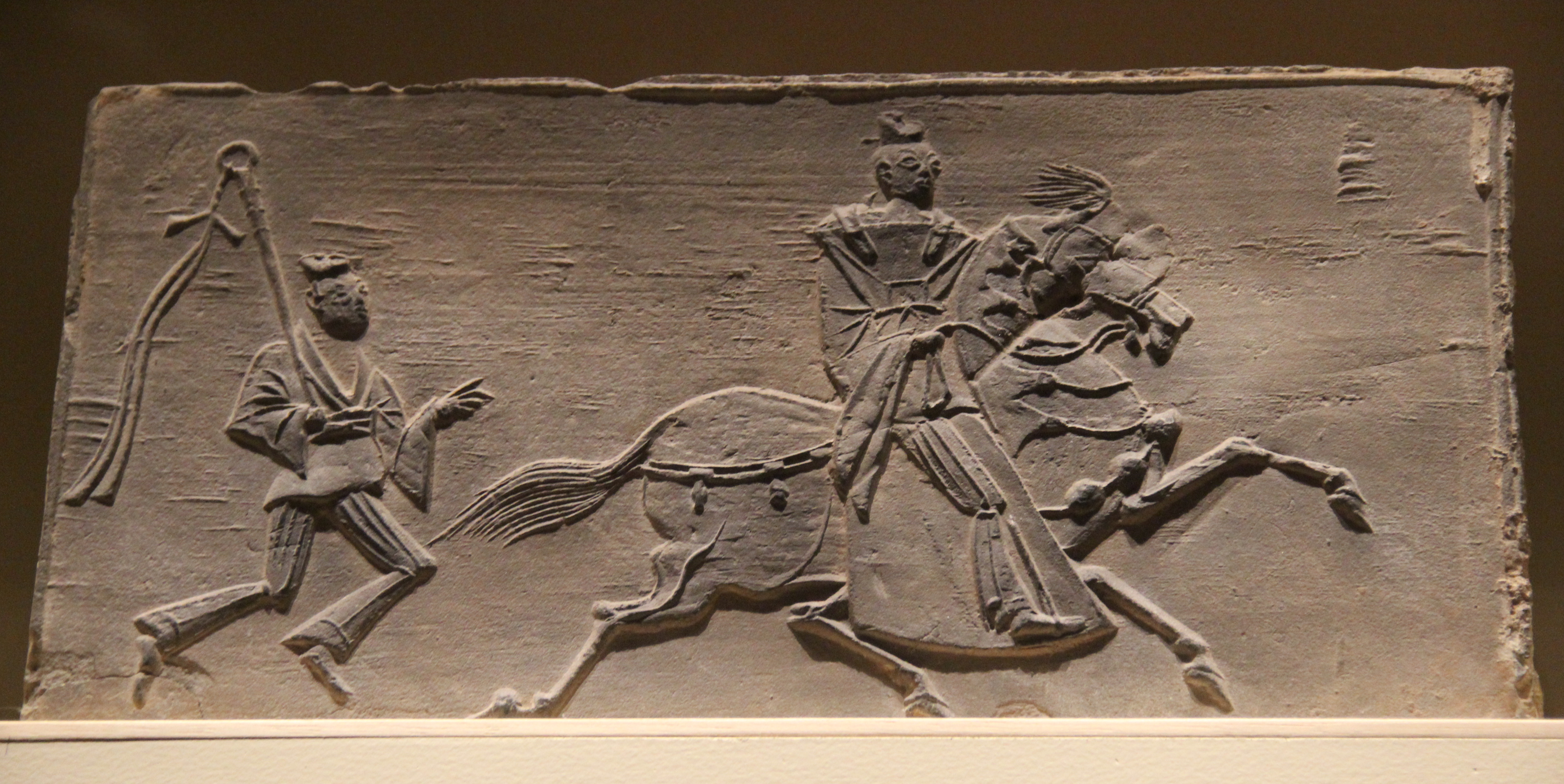|
483 Deaths
__NOTOC__ Year 483 ( CDLXXXIII) was a common year starting on Saturday of the Julian calendar. At the time, it was known in the Roman Empire as the Year of the Consulship of Aginantius without colleague (or, less frequently, year 1236 ''Ab urbe condita''). The denomination 483 for this year has been used since the early medieval period, when the Anno Domini calendar era became the prevalent method in Europe for naming years. Events By place Byzantine Empire * Byzantine general Illus (''magister officiorum''), and Verina (widow of the late emperor Leo I), attempt to overthrow Emperor Zeno and place another general named Leontius on the throne. Europe * The Ostrogoths are given status as ''foederati''; they control a large part of Macedonia and Thrace (Balkans). By topic Religion * March 10 – Pope Simplicius dies at Rome after a 15-year reign, and is succeeded by Felix III as the 48th pope; Rome is without a pope for 10 days in the interim. Felix III is a ... [...More Info...] [...Related Items...] OR: [Wikipedia] [Google] [Baidu] |
Macedonia (Roman Province)
Macedonia (; ) was a province of ancient Rome, encompassing the territory of the former Antigonid Kingdom of Macedonia, which had been conquered by the Roman Republic in 168 BC at the conclusion of the Third Macedonian War. The province was created in 146 BC, after the Roman general Quintus Caecilius Metellus defeated Andriscus of Macedon, the last self-styled King of Macedonia in the Fourth Macedonian War. The province incorporated the former Kingdom of Macedonia with the addition of Epirus, Thessaly, and parts of Illyria, Paeonia and Thrace. During the Republican period, the province was of great military significance, as the main bulwark protecting the Aegean region from attacks from the north. The Via Egnatia, which crossed the province from west to east was of great strategic importance, providing the main overland link between Rome and its domains in the Eastern Mediterranean. In this period, campaigns against the Dardani and Scordisci to the north and the Thracians ... [...More Info...] [...Related Items...] OR: [Wikipedia] [Google] [Baidu] |
Yuan Xun
Yuan Xun (元恂) (27 May 483–497), né Tuoba Xun (拓拔恂, changed 496), courtesy name originally Yuandao (元道), then Xuandao (宣道, changed 496), was a crown prince of the Xianbei-led Northern Wei dynasty of China. Tuoba Xun was born in May 483, as Emperor Xiaowen's oldest son. His mother was Consort Lin. At the time he was born, Emperor Xiaowen's step-grandmother Grand Empress Dowager Feng was the regent, and she opined that, pursuant to Northern Wei's tradition that a crown prince's mother should be forced to commit suicide, Consort Lin, because Tuoba Xun would presumably eventually become crown prince, should be forced to commit suicide. Even though Emperor Xiaowen did not want to follow that tradition, he did not want to disobey Grand Empress Dowager Feng, and Consort Lin was forced to commit suicide. He did, however, posthumously honor her as Empress Zhen, and buried her at the ancestral tomb of the emperors. Grand Empress Dowager Feng raised Tuoba Xun herself ... [...More Info...] [...Related Items...] OR: [Wikipedia] [Google] [Baidu] |
Northern Wei
Wei (), known in historiography as the Northern Wei ( zh, c=北魏, p=Běi Wèi), Tuoba Wei ( zh, c=拓跋魏, p=Tuòbá Wèi), Yuan Wei ( zh, c=元魏, p=Yuán Wèi) and Later Wei ( zh, t=後魏, p=Hòu Wèi), was an Dynasties of China, imperial dynasty of China ruled by the Tuoba (Tabgach) clan of the Xianbei. The first of the Northern and Southern dynasties#Northern dynasties, Northern dynasties, it ruled northern China from 386 to 535 during the period of the Northern and Southern dynasties. Described as "part of an era of political turbulence and intense social and cultural change", the Northern Wei dynasty is particularly noted for unifying northern China in 439, bringing an end to the chaotic Sixteen Kingdoms period, and strengthening imperial control over the rural landscape via reforms in 485. This was also a period of introduced foreign ideas, such as Buddhism, which became firmly established. The Northern Wei was referred to as "Plaited Barbarians" (索虜; ''suǒlǔ ... [...More Info...] [...Related Items...] OR: [Wikipedia] [Google] [Baidu] |
Emperor Xuanwu Of Northern Wei
Emperor Xuanwu of Northern Wei (May or June 483 – February 12, 515) was an emperor of the Xianbei-led Chinese Northern Wei dynasty (499-515). He was born Tuoba Ke, but later changed his surname so that he became Yuan Ke. During Emperor Xuanwu's reign, Northern Wei appeared, outwardly, to be at its prime, but there was much political infighting and corruption, particularly by Emperor Xuanwu's uncle Gao Zhao. Emperor Xuanwu was an avid Buddhist and often personally lectured on the Buddhist sutras. During his reign, Buddhism effectively became the state religion. Background Tuoba Ke was born in 483, as the second son of Emperor Xiaowen. His mother was Xiaowen's concubine Consort, Gao Zhaorong. (As he was born in the same year as his older brother Tuoba Xun, he was probably born just briefly after Tuoba Xun, whose mother was Consort Lin.) Little is known about his childhood, including whether he was raised by his mother Lady Gao or not. In 496, Xiaowen changed the name of th ... [...More Info...] [...Related Items...] OR: [Wikipedia] [Google] [Baidu] |
Southern Qi
Qi, known in historiography as the Southern Qi ( or ) or Xiao Qi (), was a Chinese imperial dynasty and the second of the four Southern dynasties during the Northern and Southern dynasties era. It followed the Liu Song dynasty and was succeeded by the Liang dynasty. The main polity to its north was the Northern Wei. History The dynasty began in 479, when Xiao Daocheng forced the Emperor Shun of Liu Song (宋顺帝) into yielding the throne to him, ending Liu Song and starting Southern Qi, as its Emperor Gao. The dynasty's name was taken from Xiao's fief, which roughly occupied the same territory as the Warring States era Kingdom of Qi. The Book of the Qi does not mention whether or not Xiao had any blood relationship to either the House of Jiang or House of Tian, the two dynasties which had previously ruled that kingdom. During its 23-year history, the dynasty was largely filled with instability, as after the death of the capable Emperor Gao and Emperor Wu, Empe ... [...More Info...] [...Related Items...] OR: [Wikipedia] [Google] [Baidu] |
Xiao Baojuan
Xiao Baojuan (蕭寶卷) (483 – 31 December 501), né Xiao Mingxian (蕭明賢), commonly known by his posthumously demoted title of Marquess of DonghunThe term "Donghun" (東昏) does not denote a place, but a derogatory description of Xiao Baojuan. Historically, the Chinese word "Hun" (昏), when used to describe rulers, means "incompetent" or "mediocre". In that context, the title "Marquess of Donghun" can be translated as the "Eastern Incompetent Marquess". (東昏侯), courtesy name Zhizang (智藏), was an emperor of the Southern Qi dynasty of China, during the Northern and Southern dynasties period. He was a violent ruler who executed high-level officials at his whim, and this drew several major rebellions, the last of which, by his general Xiao Yan, overthrew him and eventually his dynasty, with Xiao Yan establishing the Liang dynasty. He is known as the Marquess of Donghun because Xiao Yan demoted him to that title after he was killed in a siege of the capital Jiankang ... [...More Info...] [...Related Items...] OR: [Wikipedia] [Google] [Baidu] |
Pope
The pope is the bishop of Rome and the Head of the Church#Catholic Church, visible head of the worldwide Catholic Church. He is also known as the supreme pontiff, Roman pontiff, or sovereign pontiff. From the 8th century until 1870, the pope was the sovereign or head of state of the Papal States, and since 1929 of the much smaller Vatican City state. From a Catholic viewpoint, the primacy of the bishop of Rome is largely derived from his role as the apostolic successor to Saint Peter, to whom Petrine primacy, primacy was conferred by Jesus, who gave Peter the Keys of Heaven and the powers of "binding and loosing", naming him as the "rock" upon which the Church would be built. The current pope is Leo XIV, who was elected on 8 May 2025 on the second day of the 2025 papal conclave. Although his office is called the papacy, the ecclesiastical jurisdiction, jurisdiction of the episcopal see is called the Holy See. The word "see" comes from the Latin for 'seat' or 'chair' (, refe ... [...More Info...] [...Related Items...] OR: [Wikipedia] [Google] [Baidu] |
Pope Felix III
Pope Felix III (died 1 March 492) was the bishop of Rome from 13 March 483 to his death on 1 March 492. His repudiation of the '' Henotikon'' is considered the beginning of the Acacian schism. He is commemorated on March 1. Family Felix was born into a Roman senatorial family – possibly the son of a priest. He was married and widowed before he was elected as pope. He fathered two children, and through his son Gordianus (a priest) was thought to be great-great-grandfather to Pope Gregory I, and possibly related to Pope Agapetus I. It was also said that Felix appeared as an apparition to another of his descendants, his great-granddaughter Trasilla (an aunt of Pope Gregory I), and asked her to enter Heaven, and "on the eve of Christmas Trasilla died, seeing Jesus Christ beckoning". Eutychian heresy Eutyches was an archimandrite at Constantinople. In his opposition to Nestorianism he seemed to have taken the opposite view to extremes. In an effort to defuse controversy rega ... [...More Info...] [...Related Items...] OR: [Wikipedia] [Google] [Baidu] |
Rome
Rome (Italian language, Italian and , ) is the capital city and most populated (municipality) of Italy. It is also the administrative centre of the Lazio Regions of Italy, region and of the Metropolitan City of Rome. A special named with 2,746,984 residents in , Rome is the list of cities in the European Union by population within city limits, third most populous city in the European Union by population within city limits. The Metropolitan City of Rome Capital, with a population of 4,223,885 residents, is the most populous metropolitan cities of Italy, metropolitan city in Italy. Rome metropolitan area, Its metropolitan area is the third-most populous within Italy. Rome is located in the central-western portion of the Italian Peninsula, within Lazio (Latium), along the shores of the Tiber Valley. Vatican City (the smallest country in the world and headquarters of the worldwide Catholic Church under the governance of the Holy See) is an independent country inside the city boun ... [...More Info...] [...Related Items...] OR: [Wikipedia] [Google] [Baidu] |
Pope Simplicius
Pope Simplicius (died 2 or 10 March 483) was the bishop of Rome from 468 to his death on 10 March 483. He combated the Eutychian heresy, ended the practice of consecrating bishops only in December, and sought to offset the effects of Germanic invasions. Election Simplicius was born in Tivoli, Italy, the son of a citizen named Castinus.J. P. Kirsch, "Simplicius, Pope St." After a vacancy of 10 days following the death of Pope Hilarius, Simplicius was consecrated on 25 February 468. Pontificate Simplicius defended the decisions of the Council of Chalcedon against the Eutychian heresy. When the Eutychians rose up in Antioch and installed Petrus Mongus, Simplicius made repeated complaints for action to Basiliscus and Leo I, emperors of the Eastern Roman Empire, for the restoration of the Catholic bishop; he did the same when Petrus Fullo usurped the seat of the patriarch of Alexandria. He rehabilitated Patriarch Timotheos Solofaciolus. In 478, Simplicius held a synod in Rome, w ... [...More Info...] [...Related Items...] OR: [Wikipedia] [Google] [Baidu] |




